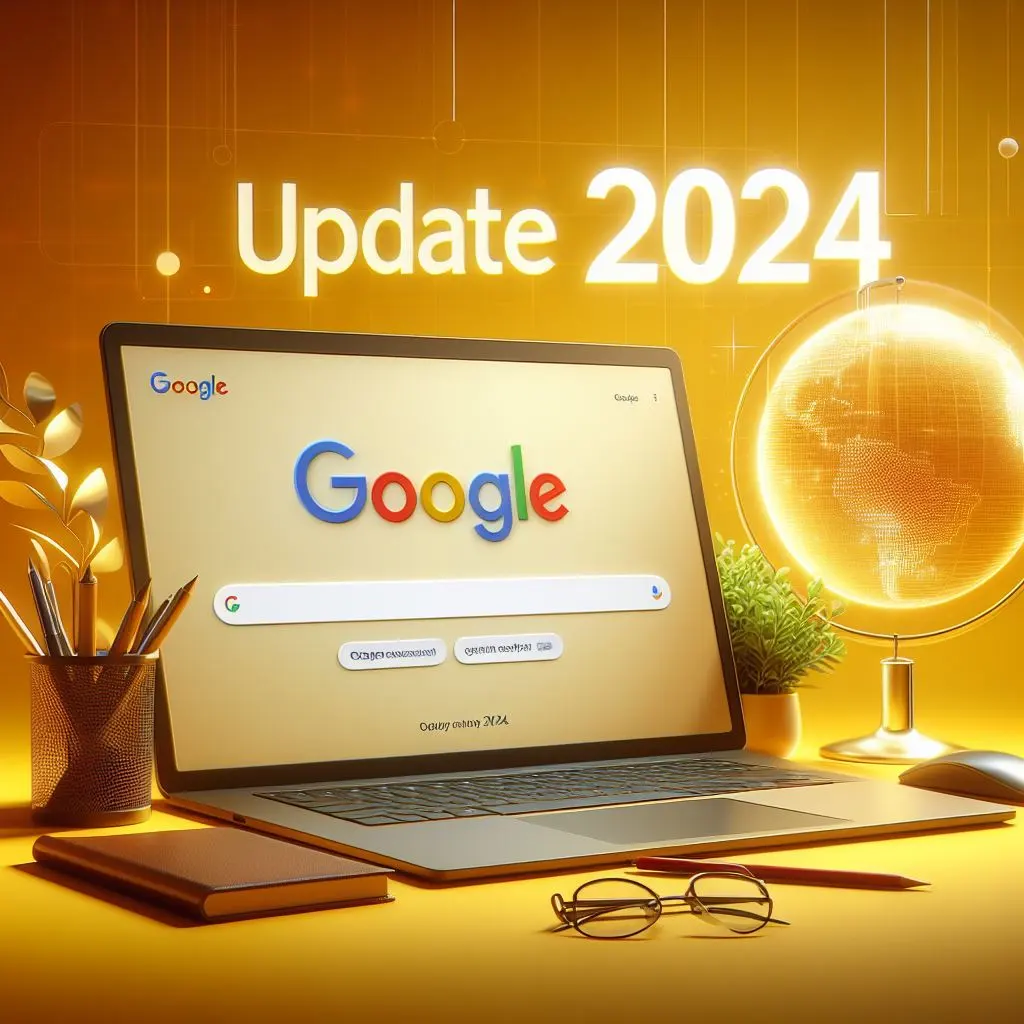
Remember when stuffing keywords was the key to good SEO? Well, those days are behind us. Thanks to Google’s update in March 2024, they’re giving a thumbs up to websites that genuinely help people. Interested in leaving the old keyword tricks behind and creating useful content (and maybe a bit entertaining)? Learn how to make your website the hero of user searches.
Table of Contents
- Summary of Google’s Update of March 2024
- 1. Remove Unhelpful Content from Search Engines
- 2. Scaled Content Abuse
- 3. Site Reputation Abuse
- 4. Expired Domain Abuse
- How Will This Update Affect My Website?
- How to Address Google’s Helpful Content Update of March 2024
- Conclusion
- Frequently Asked Questions
Summary of Google’s Update of March 2024
- The Google Core’s Update of March 2024 aims to reduce duplicate, low-quality and unhelpful content by 40%.
- Changes in Algorithm to improve search result quality and new spam policies.
- Target scaled content abuse, new spam policies, site reputation abuse and expired domain abuse.
For in-depth knowledge and insights on Google Updates in 2023
1. Remove Unhelpful Content from Search Engines
This involves refining and modifying Google’s basic ranking algorithms in order to help Google determine useless webpages, offers an inadequate user experience, or have been made with search engines in mind rather than people, This may apply to websites designed primarily to respond to highly targeted search queries.
Google believes these updates will reduce the amount of low-quality content on Search and send more traffic to helpful and high-quality sites.
How do you identify unhelpful content on your website?
To check whether your content is helpful, ask these questions to yourself
- Is your content something your current or intended audience would find helpful if it was sent directly to them?
- Does your content show that you know a lot about the subject and have personal experience with it?
- Does your website have a main goal or purpose?
- Do people feel satisfied after reading your content?
- Does your content attract people from search engines more than real human visitors?
- Are you creating a lot of content on various topics just to get it to show up in search results?
- Do you mostly share what others say without adding your thoughts?
- Does your content make readers want to search again for better information from other sources?
- Are you focusing on a specific word count because you heard Google prefers it?
- Did you pick a topic to write about even though you’re not an expert, thinking it would bring more web traffic?
- Does your content promise to answer a question that doesn’t have a clear answer?
If you answered “no” to most of these questions, it might be time for a content refresh. Consider partnering with an SEO company in Ahmedabad for a comprehensive website audit and strategic content creation guidance
2. Scaled Content Abuse
BEWARE! If you are creating content extensively through automation, human efforts, or a combination of both, and posting it on your site. This practice is now considered as manipulating search rankings. In essence, Google will now regard the generation of content at scale, whether through manual processes, automation, or a combination of both, solely to enhance rankings, as a violation of its guidelines.
Pages that claim to have answers to frequently searched terms but lack valuable content serve as examples of this type of spam. These pages may initially attempt to address a particular query but often mislead the viewer with low-quality content, ultimately leaving the inquiry unanswered.
3. Site Reputation Abuse
Additionally, Google is creating guidelines for “parasite SEO,” or the misuse of a website’s reputation when it hosts low-quality content from outside sources (also known as guest blogging). The purpose of this is to capitalise on the ranking elements of those external websites.
According to the new policy, content created and published by third parties without the site owner’s supervision is ranking higher than it is marked as spam. All third-party content won’t, however, be regarded as illegal. Spam will only be applied to content that is hosted carelessly and is meant to manipulate search engine rankings.
4. Expired Domain Abuse
Occasionally, the primary objective of buying and reusing expired domains is to increase the search ranking of unoriginal or low-quality content. This may mislead users into believing that the new information is a part of the older website when in fact it is not. Currently, expired domains that are bought and used again to make low-quality content rank higher in searches are regarded as spam.
Every day, search answers billions of queries for users, but there’s always room for improvement.
How Will This Update Affect My Website?
Google’s Helpful Information Update of March 2024 aims to significantly enhance search results by making websites offer helpful and informative experiences to users and decreasing the visibility of low-quality information.
This is how it can affect your website:
Positive impacts
- Websites with useful, high-quality content: Since Google gives preference to information that actually benefits people, these websites would notice an increase in rankings.
- Put the user experience first: Websites that put the user experience first and have easy-to-navigate design, quick loading speeds and mobile compatibility are probably going to do well.
- Websites with unique and useful content: Original thoughts, statistics or extensive research are likely to have a favourable effect on websites.
Negative impacts
- Websites with weak content: Short, superficial, or uninspiring content may lose position in search results.
- Clickbait articles and misleading content: Content designed to attract clicks with sensational headlines but lacking content will likely be penalised.
- Websites that are mainly search engine optimised: Websites that prioritise keyword stuffing or other unethical SEO methods may suffer negatively.
- Abuse of expired domains: Google may take manual action against websites that post low-quality material under expired domains with a track record of authority.
How to Address Google’s Helpful Content Update of March 2024
Here are some SEO best practices you can follow to Stay Ahead of the Game.
Focus on E-E-A-T
What exactly does Google consider? It’s E-E-A-T. Expertise, Authoritativeness, and Trustworthiness. Mastering these principles is crucial for websites to stay ahead of the
Here’s how you can utilise E- E-A-T to ensure your website thrives after the update:
Showcase your expertise
- Content Depth & Value: Go beyond surface-level information. Craft in-depth, informative content that demonstrates a thorough understanding of your field. Answer user questions comprehensively, providing insights and solutions that establish you as a thought leader.
- Author Credentials: Highlight the expertise of your content creators. Feature author bios with relevant qualifications, experience, and credentials. Consider including author photos to add a personal touch, fostering trust with your readers.
Build your authoritativeness
- Build your authorativeness: Earn recognition within your industry. Seek opportunities to be featured on established websites, participate in conferences, or win relevant awards. Showcase these accolades on your website to demonstrate industry recognition.
- Brand Mentions: Track and highlight positive mentions of your brand in reputable publications or online reviews. These positive references act as external validation and boost your website’s authority.
- Backlinks from High-Quality Sites: Secure backlinks from established websites within your niche. Backlinks are essentially votes of confidence for your website, indicating to Google that you’re a trusted source of information.
Earn user trust
- Website Transparency: Be transparent about your website’s ownership and purpose. Display contact information and an “About Us” page detailing your team and mission.
- High-Quality Design & User Experience: Ensure your website is visually appealing, easy to navigate and mobile-friendly. A positive user experience increases time spent on your site and signals to Google that you prioritise user needs.
- Factual Accuracy & Proofreading: Maintain impeccable standards for grammar, spelling and factual accuracy. Avoid misleading information or unsubstantiated claims. Credibility is key to earning user trust.
Know Your Audience
Conduct keyword research to understand what people are searching for related to your business. But don’t just stop at keywords – dig deeper and understand the intent behind those searches.
Become an Expert in Your Field
People trust websites that project knowledge and authority. Share your expertise through informative blog posts, guest articles and even video tutorials.
Content with Personality
Don’t be afraid to add some personality to your writing! A conversational tone, relatable examples and even a dash of humour can make your content more engaging and memorable.
Freshness is Key
Don’t let your website become a digital museum. Regularly update your content with new information, keep your blog posts fresh and consider adding new formats like videos or infographics.
Back-Up Your Claims
Credibility is a must in the content. Support your statements with data, research and links to reputable sources.
Conclusion
The Google Helpful Content Update isn’t a reason to panic, but a chance to create content that shines! Focus on user needs, showcase your expertise and sprinkle in some personality. You’ll not only please the algorithm but also build a loyal audience. Feeling a little overwhelmed by the update? We get it! As a leading digital marketing company in Ahmedabad, we offer a full suite of SEO services to take your website to the top of search results. Contact our team at hello@florafountain.com and let’s create content that’s both informative and helpful!



